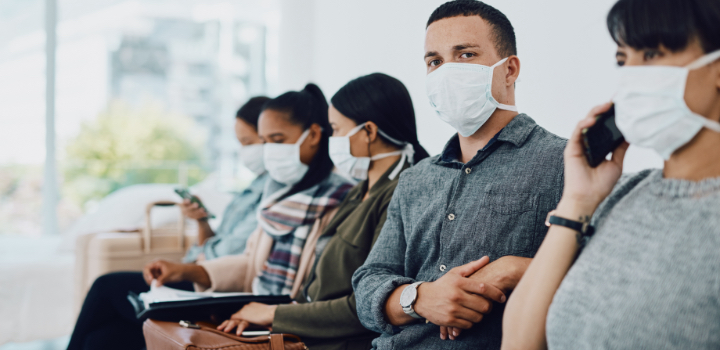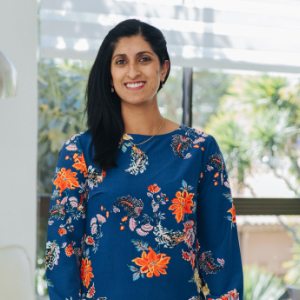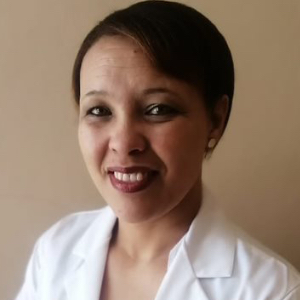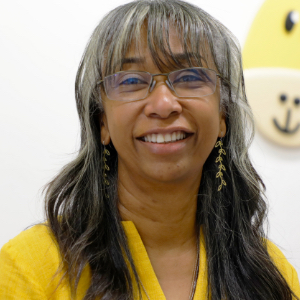Vaccine hesitancy - why does it happen?

Reluctance or refusal to vaccinate, despite the availability of vaccines - often called vaccine hesitancy - was in 2019 listed by World Health Organization (WHO) as one of the ten threats to global health.
Various literature points out that vaccine hesitancy is not new or unique to coronavirus vaccines and specifically COVID 19 vaccines. Common reasons that hesitancy happens in South Africa include:
- Concerns about the speed of vaccine development and the regulatory approval process followed (EUA or emergency use authorization in the USA)
- Safety concerns (vaccine side effects) relating to COVID-19 vaccines
- Lack of trust or confidence in vaccines and vaccination due to misinformation
- Religious and cultural beliefs
- Misinformation and myths
- Influence by anti-vaccination lobbyists
Why is vaccine hesitancy to be expected, but also dangerous?
A recent study about this hesitancy took place by the University of Johannesburg's (UJ) Centre for Social Change and Human Sciences Research Council's (HSRC) Developmental, Capable and Ethical State (DCES) division. According to this study, the most common explanations given for not wanting to vaccinate were the following:
- Concerns about side effects (25%)
- Concerns about the overall effectiveness of the vaccine (18%)
- Explanations related to conspiracy theories or the supernatural (at 7% and 4% respectively).
The implication of the non-acceptance of vaccines or hesitancy could be less vaccination uptake and difficulty in reaching population immunity. These possible outcomes could then cause the continued spread of COVID-19 infections, with increased hospitalisations or deaths in unvaccinated people.
Dealing with doubt
A seventeenth-century saying reminds us that "no man is an island". When in doubt, it is also best to ask, which is important in dealing with vaccine hesitancy. We should always encourage debate and discussion around vaccination, a lifesaving intervention.
Instead of condemning or insulting those who have doubts on whether to vaccinate, we should rather provide them with the necessary information. Or we could refer them to credible sources of information to let them make an informed decision about vaccinations. After all, communication is not a once-off event but an ongoing process.
Vaccine confidence
According to Centers for Disease Control and Prevention (CDC), vaccine confidence is the trust that patients, their families and health professionals have in the following:
- Recommended vaccines
- Health professionals who administer vaccines
- Processes and policies that lead to vaccine development, granting of licences or authorisation, manufacturing and recommendations for use.
Accepting that people can ask questions about COVID-19 vaccines safety and effectiveness is viewed as an important factor in building confidence. People's previous experience with vaccines might have left them with a negative psychological impact, leaving them with a feeling of shame or anxiety, eventually resulting in a resistance to change.
Having those who have vaccinated share their experiences could be one way to turn vaccine hesitancy around.
CDC recommends Six Ways to Help Build COVID-19 Vaccine Confidence:
- Encourage leaders in your family, community or organisations to be vaccine champions.
- Have discussions with your friends and family about vaccination to understand their perspective and encourage their decision to vaccinate.
- Share key messages that promote action through multiple trusted channels
- Help educate people about COVID-19 vaccines, including how they were developed and their intense safety monitoring, and how you can talk to others about the vaccines.
- Learn more about finding credible vaccine information. When you come across COVID 19 information, cross-check with CDC.gov and learn how to respond to any misinformation.
Make your decision to get vaccinated visible and celebrate it!
All medical information found on this website including content, graphics and images, is for education and information objectives only. Discovery publishes content to help to promote a better understand of COVID-19 and COVID-19 vaccinations. The content covered is an overview of key concepts and is not exhaustive in nature. We encourage further reading from other credible sources where necessary.
South African organisations:
- National Department of Health's dedicated COVID-19 portal: https://sacoronavirus.co.za/
- National Institute for Communicable Diseases' (part of the National Health Laboratory Service) dedicated COVID-19 hub
- South African Health Products Regulatory Authority (SAPRHA - part of the National Department of Health).
- South African Medical Research Council (SAMRC)
- South African Medical Journal ()
International Organisations:
- Johns Hopkins University
- Harvard Health, Harvard University COVID-19 resource center
- Mayo Clinic COVID-19 resource center
- New England Journal of Medicine (NEMJ)
- US Centers for Disease Control and Prevention (US CDC)
- US Food and Drug Administration (US FDA)
- World Health Organization (WHO)
Related articles


